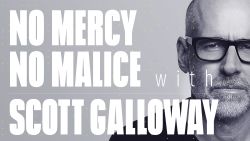Mark Zuckerberg is finally coming face to face with a top UK official who’d like to regulate Facebook.
After avoiding multiple requests to testify in front of a UK parliamentary committee, the Facebook (FB) CEO is set to meet Thursday with Jeremy Wright, the UK secretary for digital, culture, media and sport. The private meeting is part of Wright’s Silicon Valley tour ahead of the release of a plan that will lay out how the UK government could better regulate internet companies.
In an interview with CNN Business on Wednesday, Wright said he plans to tell Zuckerberg that he should show up to testify in front of the UK parliament in order to explain Facebook’s approach to data privacy and efforts to stem the spread of misinformation.
“I think it would be an opportunity for him to make the case,” Wright said shortly after meeting with executives at Google (GOOGL), one of several major technology companies the UK official is visiting this week. “And if he doesn’t do that, there will be a suspicion — and indeed there is — that he doesn’t have a good case to make.”
For Wright, the visit to California with UK Digital Minister Margot James is a way to get input from the companies that will be directly impacted by any future UK regulation — something that is no longer a question of if it happens, but when and how.
‘Digital gangsters’
Wright’s visit comes the same week as the release of a scathing UK parliamentary report on disinformation and fake news, which likened Facebook to “digital gangsters” that knowingly violated data privacy and competition law.
Throughout the 18-month inquiry, the committee repeatedly asked Zuckerberg to testify. The requests were rebuffed so many times that the committee said it would issue a summons for the billionaire CEO if he ever set foot in the United Kingdom.
In response to the report, Facebook denied it violated any laws and said it’s open to regulation. The company declined to comment on the planned meeting between Zuckerberg and Wright.
Last week, a report commissioned by Wright’s department on how to preserve high quality journalism in the United Kingdom recommended that the government investigate Facebook and Google’s advertising dominance, and that a regulator should oversee the relationship between the news industry and tech giants.
The other tech companies Wright and James will visit during their trip include Twitter (TWTR), Apple (AAPL), Snap (SNAP) and Tinder. They also plan to meet tech experts and high-profile figures like LinkedIn founder Reid Hoffman.
Regulation is coming
Wright told CNN Business that executives at the tech companies he’s talked to so far seem to recognize the regulation is coming, though they’re keen to show him the mechanisms they already have in place. That self-regulation is not enough, Wright said.
“There’s an acceptance that the UK government is determined to have a system in place to catch those who are not behaving as they should,” he said. “Although I don’t think anyone welcomes regulation, there’s an acceptance this will almost certainly happen, and we’re getting useful conversations as to how this will take place.”
Wright and Home Secretary Sajid Javid will be releasing a white paper in the coming weeks with a range of legislative and non-legislative proposals to tackle online risks.
One of Wright and Javid’s main concerns is how to make the online world “safer” from illegal activity like child exploitation, cyber bullying and harassment, as well as less clear-cut issues such as posts that seemingly promote self-harm.
Wright said they’re considering a range of options, including appointing a new online regulator. But he cautioned that the white paper is just the starting point.
“This is a consultative process, deliberately so,” he said, noting that if the United Kingdom enacts these regulations, it will be “groundbreaking.” That makes it “so important that you take the trouble to get the details right and talk to those who will be directly affected by it,” he added.
“It is important that what we do is simultaneously protecting people from harm … and at the same time maintain what is best about the internet,” Wright said. “We have to try and strike a balance between them.”


























